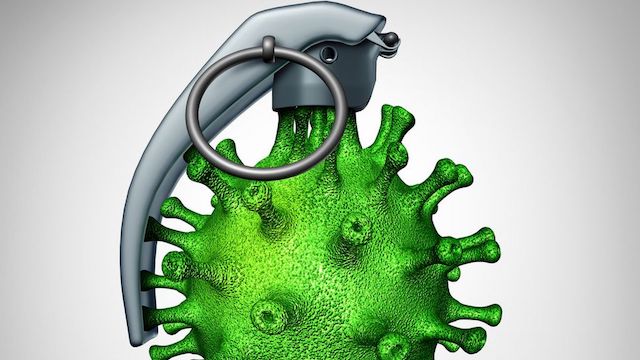We tell you something.
Sign up for the newsletter now!
NEWSLETTER
Get the weekly SPARTANAT newsletter.
Your bonus: the free E-Book from SPARTANAT.

Welcome to my website
This is a multilingual website
Here is an image of a beautiful sunset:

Click here for more information
Biological weapons such as ricin, anthrax, or botulinum toxin lead a shadowy existence in public perception, with little pressure on political actors. While the international Biological Weapons Convention prohibits the development, production, and storage of biological weapons, there are no inspections conducted. However, there is a glimmer of hope. Gunnar Jeremias, Head of the Interdisciplinary Research Group for the Analysis of Biological Risks at the University of Hamburg (ZNF), hopes that the global Corona pandemic can contribute to strengthening the Biological Weapons Convention. In a conversation with the initiative Faces of Peace, the bioweapons expert unequivocally rejects conspiracy theorists: "One cannot produce something like this in the best laboratory in the world!" Keyword Bioweapons: You are the head of the research center for biological weapons and arms control at the University of Hamburg. What exactly are biological weapons? Biological weapons are pathogens, such as viruses and bacteria, and biogenic toxins, such as ricin or botulinum toxin, that are used, manufactured, or stored for non-peaceful purposes. This restriction is important: the anthrax agent itself is not a biological weapon, as it occurs in nature. It is only when used for hostile purposes that it becomes a weapon. This definition is also enshrined in the bioweapons ban and applies comprehensively: it does not matter if the agents can only cause a few people to become sick through their dissemination, or if there is the potential to trigger a pandemic. "Modern biotechnological processes could be used to modify pathogens to make them even more dangerous!" It is also important to realize that biological weapons do not necessarily have to target humans; scenarios for use could also involve harm to animals or plants, such as in agriculture. Modern biotechnological processes could be used to modify pathogens to make them even more dangerous; and it is also conceivable to develop bioweapons that affect the body's own regulatory systems. [Click here](http://www.biological-arms-control.org/staff_gunnarjeremias.html) to read the full content and see the images.SPARTANAT is the online magazine for Military News, Tactical Life, Gear & Reviews.
Send us your news: [email protected]
Ad
similar
We tell you something.
Sign up for the newsletter now!
NEWSLETTER
Get the weekly SPARTANAT newsletter.
Your bonus: the free E-Book from SPARTANAT.


